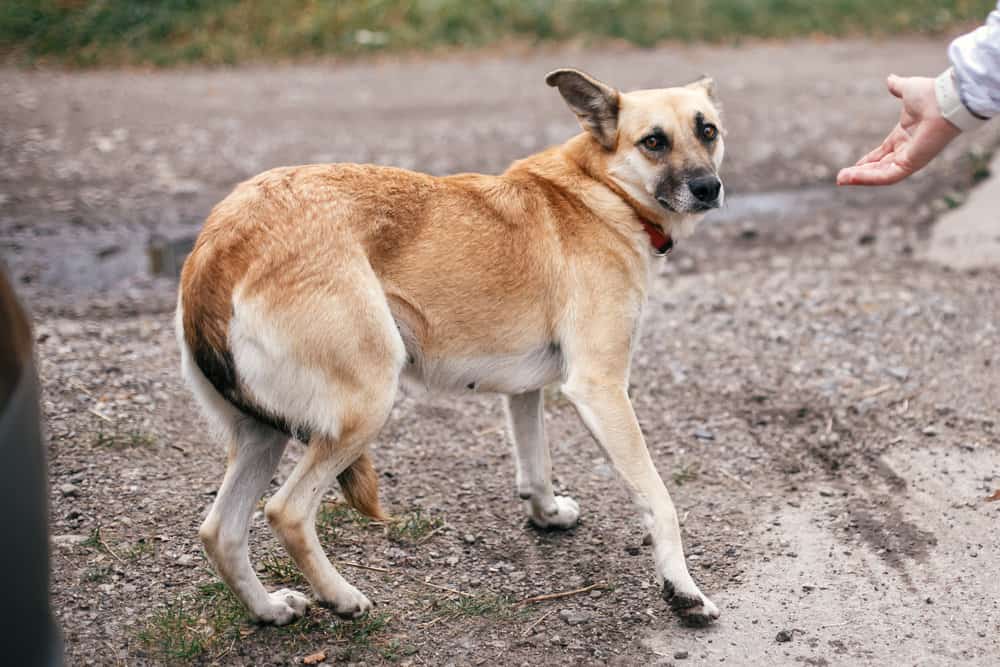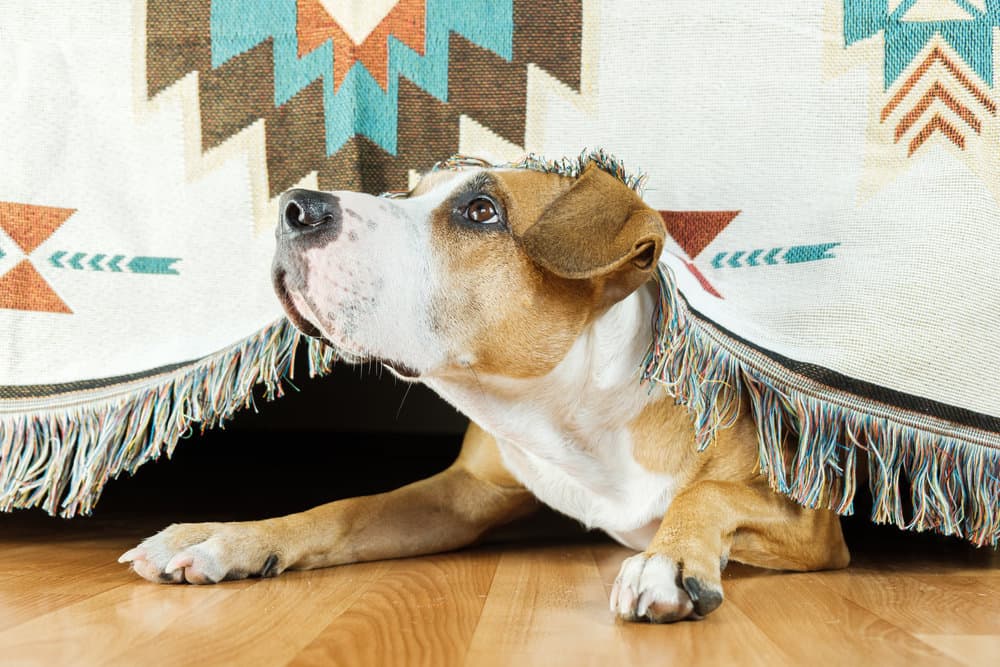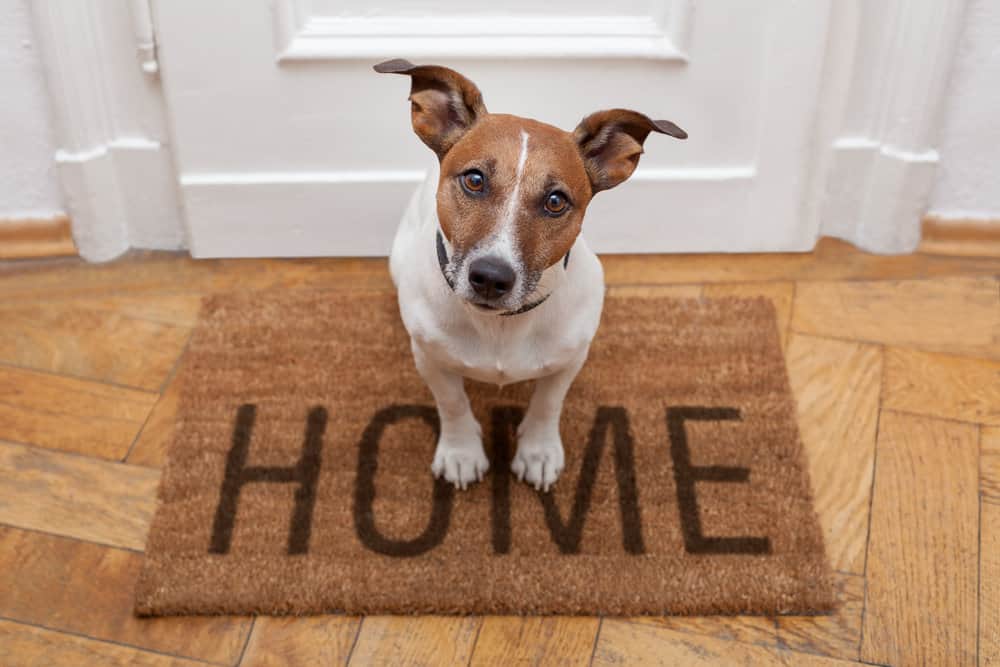Rehoming a pet can cause a lot of emotional turmoil for pet owners, but how does it impact the dog in question? How does a dog feel when rehomed?
Placing a dog in someone else's care can be an extremely stressful and even traumatic experience for the pet involved. In the first few days of rehoming, the dog may show signs of depression, anxiety, or aggression.
Do Dogs Feel Sad When Rehomed?
If a dog has formed a close attachment to his old owner, he'll likely feel sad and confused when placed in someone else's care.
He may develop anxiety and depression, which can manifest in ways like constant whining/barking, lack of interest in food, and hiding.
Luckily, canine depression isn't as serious or hard-hitting as human depression.
Long-term depression is possible but is extremely rare. With a bit of hands-on care, most dogs bounce back from depression within a few days or a few weeks.
Helpful Dog Training Resource:
For help with training your dog, you should take a look at The Online Dog Trainer by Doggy Dan. Doggy Dan is an expert Dog Trainer based in New Zealand. His online resource contains Hundreds of Excellent Dog Training Videos that will take you step-by-step through the process of developing a healthy, happy well-behaved dog.
Common Behavioral Changes in Dogs After a Rehoming
Here are some of the most common behavioral changes present in dogs after they’ve been rehomed:
Anxiety

For rehomed dogs, anxiety is a common emotion. It's a normal, adaptive response to new stimuli. You'd likely feel the same when suddenly placed in a completely new environment with new people.
Anxiety in dogs can manifest itself in multiple ways, such as:
- Excessive whining and/or barking
- Trembling, hiding, tail-tucking, and tail chasing
- Reduced activity
- Escape behaviors
- Panting and pacing
- Diarrhea
- Digging
- Destroying furniture
- Lack of appetite
- Self-harm (i.e., excessive licking or chewing)
- Excessive urination
Less obvious signs of anxiety include:
- Looking away
- Reduced or increased energy levels
- Lip licking
- Whites of eyes showing
Anxious dogs often appear reluctant, shy, and too nervous to interact with others. If the dog was rehomed from neglectful or abusive owners, he may show signs of aggression and destructive behavior.
Stress
Stress in dogs looks much like anxiety.
Stressed rehomed dogs will refuse to eat food, lack interest in play, and growl or bark for no apparent reason. They might even bite their new owners when they approach.
Indicators of stress in rehomed dogs include:
- Yawning, licking, and excessive drooling
- Changes in body posture (i.e., cowering, shifting weight to rear legs, tucking tails, going rigid when approached)
- Changes in eyes and ears (rapid blinking, dilated pupils, wide eyes, pinned ears)
- Excessive shedding
- Hiding or escaping
- Focusing on something else when new owners are around

Sadness
Though dogs mostly have short-term memories, they don't forget about their previous owners when rehomed—at least, not immediately.
Dogs have the ability to remember people and places they haven't seen in years, especially when said person or place is associated with strong positive or negative feelings.
The longer a dog is around their person, the more attached and loyal they become.
And when they're rehomed and “taken away” from that person, they feel abandoned, scared, and confused.
A sudden break in the bond can cause the dog to feel extreme sadness that can last for days.
When a dog is sad, he's less attentive to his surroundings. He'd sleep all the time, whine/bark incessantly, and refuse to play.
PTSD
Post Traumatic Stress Disorder (PTSD) is common in dogs that have been rehomed from abusive or neglectful situations.
Like humans, dogs that suffer from PTSD may show extreme timidness, aggression, or anxiety.
Owners adopting dogs that come from less-than-ideal homes should ideally have no other dogs or children, as dogs with PTSD can be unexpected and sometimes dangerous.
They can easily get triggered by other animals or children and may attack unprompted.
It's always wise to check the old owner's background when rehoming a dog, as some people aren't equipped to deal with behavioral issues due to past trauma.
Signs of PTSD in dogs include:
- Hyper-vigilance
- Seemingly unprompted aggression
- Overattachment or dependency on the new owner
- Fearfulness
- Peeing or pooping in the house, even when housetrained
- Avoidance of certain people
- Chronic anxiety
- Reluctance to eliminate
- Hyperarousal
Helpful Dog Health Resource:
Note: Our Health is #1 Priority. It should be no different for your dog. But you need to help him. The Ultimate Guide to Dog Health is the answer. This handy guide will help you recognize the symptoms of the health problems above. Get the knowledge to stay ahead of these terrible issues that can rob your lovely dog from vigor and life. Help your friend make it to 14 yrs+ without pain and suffering.
Common Physical Changes in Dogs After a Rehoming
A rehomed dog shows both physical and behavioral changes.
Alongside anxiety, stress, and sadness, new owners may also have to deal with physical changes in their dogs.
This can include digestive upsets, like diarrhea, constipation, vomiting, and weight loss.
Some dogs may also produce an excessive amount of drool, often accompanied by trembling, panting, and other signs of nervousness.
These symptoms can last for a few hours or extend to a few days, in which case a medical intervention may be necessary.
How Long Do Dogs Miss Their Old Owners?
There's no one-word answer to this question, as it really depends on the dog.
If a dog has been rehomed from a family he's loved dearly, it's likely that he'll never stop missing his previous owners.
However, this doesn't mean that he won't develop new feelings of affection for his new owners. All it really takes is some time, patience, and a lot of love.
Rehomed puppies under the age of three months adapt more quickly to new owners and environments.
They may form bonds instantly and feel comfortable around their new owners in just a few days.
Older dogs take much longer to adjust, sometimes up to several weeks or even months in severe cases.
Generally, though, most dogs adapt to new homes pretty quickly, especially if surrounded by a fun, loving environment with caring owners.
What's the Best Way to Help a Dog Adjust to a New Home?

Rehoming doesn't have to be a stressful experience for dogs. With the right approach, it can even be a pleasant one.
The best way to ease the transition is to have a lengthy meet and greet with the dog before the rehoming process.
Let the dog be acquainted with all the new owner's family members. If possible, let him play with the new owners so he forms a positive attachment to them.
During the meet-and-greet, both old and new owners should be present to make the dog feel safe and secure during the visit.
If you don't have the luxury to meet the dog's previous owners, make your home as comfortable as possible before rehoming the dog.
It's a good idea to set up a dog kennel in a quiet area in the house. Don't place it in the living room or dining room where people frequent the most.
Additionally, create a routine for the puppy.
Feed the pup every day at the same time, and take him out for walks at the same time. Let him get used to your presence but don't force it.
Give the dog time to adjust; he'll come around eventually!
Most importantly, extend your patience.
Rehoming can be an anxiety-inducing experience for many dogs. They may accidentally urinate or defecate around the house, whine or bark for hours, or even show signs of destructive or aggressive behavior.
Be understanding and don't punish the dog. Approach the situation in a calm but firm manner to let the dog know you're safe and can be trusted.

Paul has been creating content for the dog niche for many years. The information he shares comes his first hand experience growing up in dog lovers household and then owning multiple dog breeds of his own as an adult. Paul enjoys doing the hard research to collect, analyze and present our dogtemperament.com readers with the best answers to their questions.